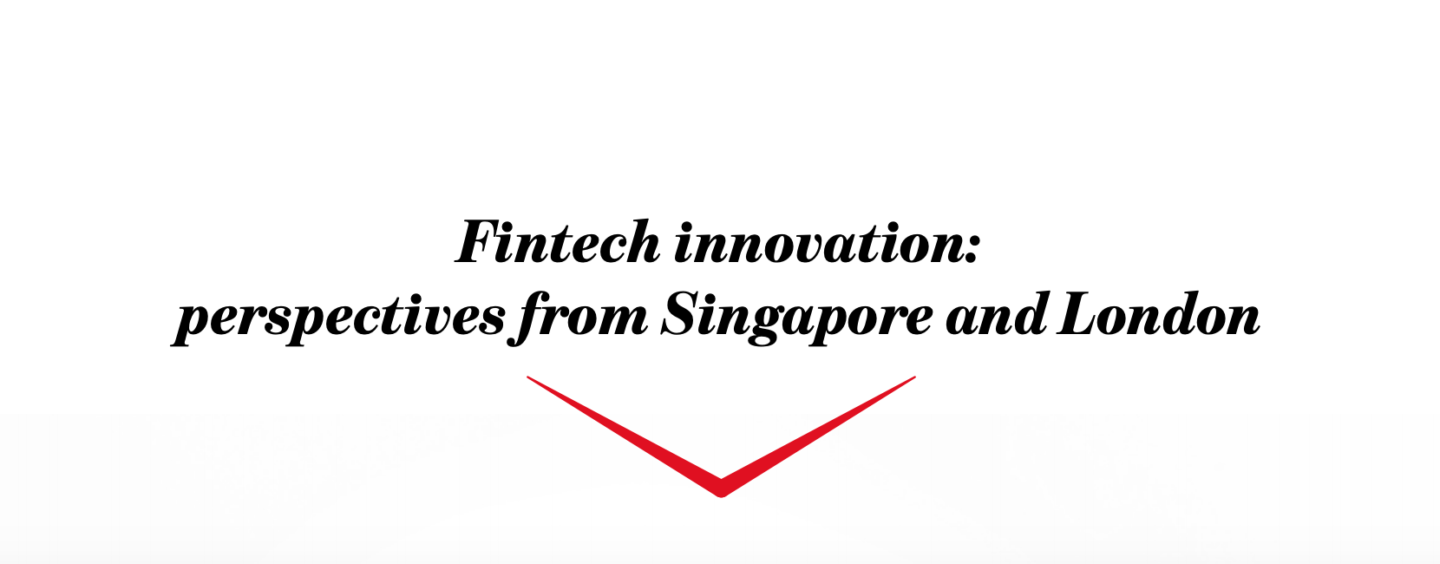
New Report Explores Singapore and London Strengths and Challenges as Fintech Hubs
by Fintech News Singapore January 7, 2019Though Singapore and London have all the key elements to enable the emergence of thriving fintech ecosystems, challenges remain for the two locations which shouldn’t be undermined, including the need to collaborate.
In a new international research report titled Fintech innovations: perspectives from Singapore and London, ICAEW and the Institute of Singapore Chartered Accountants (ISCA) explore the strengths and challenges for Singapore and London as fintech hubs and identify the key elements that underpin successful fintech hubs.
Five key features
According to the research paper, the development of fintech is generally concentrated in hubs where five key elements co-exist and work together, namely markets, talent, capital, progressive regulation and strong government support.

Five elements that make a successful fintech hub, Fintech innovations: perspectives from Singapore and London
Singapore and London are quite unique in the way that they bring all five elements together in one place, the report says.
It cites the example of the US, the leading location for fintech in terms of value, which however has a fintech sector somewhat split in terms of location. Silicon Valley is the center for tech talent and capital, New York has the established financial sector and skills, and Washington DC has the regulatory functions, alongside state regulators. Similarly, in Germany, the center of tech innovation is Berlin while the financial sector is located in Frankfurt.
The report highlights the importance of regulation and government initiatives in creating a healthy fintech ecosystem. These should be used as competitive advantages, it says. As financial services is a regulated sector, regulation needs to be considered from the early stages in the development of fintech products and services.
Both the UK and Singapore have regulators and governments who are actively supporting innovation and the growth of the sector. Among other initiatives, the two locations offer regulatory sandboxes which allow fintech companies and financial firms to test innovative products in a controlled environment. Sandboxes aim to help bring new products to market more quickly and cheaply.
In terms of market access and capital, Singapore and London are well placed and are home to a large pool of investors who are providing capital to fintech companies.
Both also have mature and successful financial services sectors, which provide strong foundations for fintech with established markets for new products and services and a lot of financial services, technology and regulation talent already in place.
London has a good track record for attracting technical talent from around the world. According to a 2018 survey by Innovate Finance, 42% of the workforce in the surveyed fintech companies were foreign nationals, most of whom were working in computer science and technical roles. Meanwhile, Singapore has been working closely with other hubs, especially in Southeast Asia, where there may be suitable technical talent that can deliver the work needed.
Additionally, the two locations are putting significant efforts into increasing the domestic talent pool for technology in general, and fintech specifically. The UK’s Innovate Finance and the Open University offer a free Fintech 101 online course. The Monetary Authority of Singapore (MAS) and the Infocomm Media Development Authority (IMDA), together with SkillsFuture Singapore (SSG), six local universities, and five financial associations, announced a partnership in November 2017 to launch the TechSkills Accelerator (TeSA) Fintech Collective to jointly develop industry-ready professionals.
Need to collaborate
Despite these key features, London and Singapore, like any other hub, cannot operate in isolation and must continue to build strong links with other locations.
In Singapore, there is a clear need to collaborate given the small size of the population at under six million people, and it has positioned itself as a “hub among hubs” and a gateway to Southeast Asia. MAS has already inked partnerships with the likes of Abu Dhabi, Dubai, France, the UK, South Korea and Australia.
London also needs to work with others, for example drawing on talent from across the UK and internationally.







